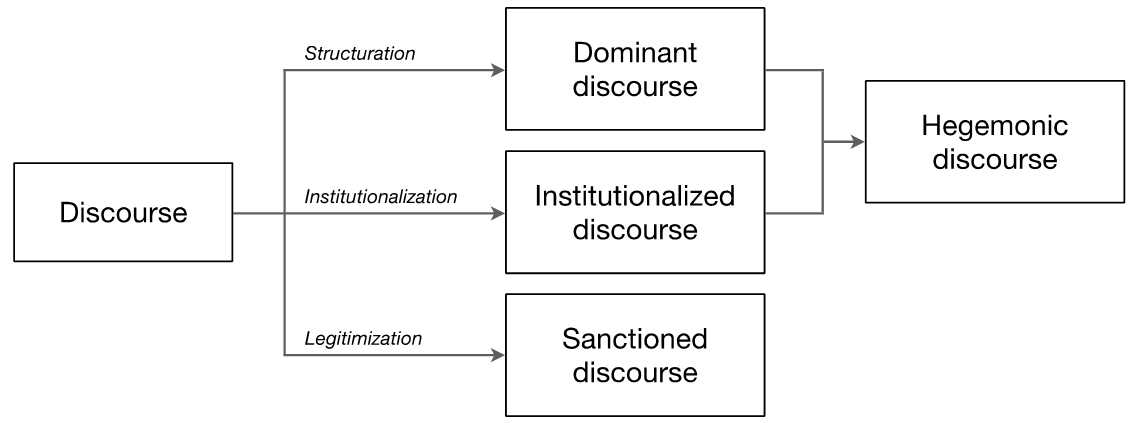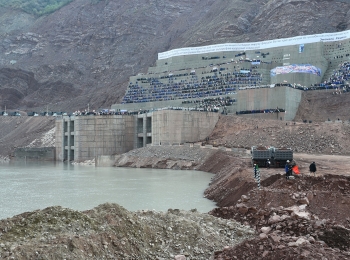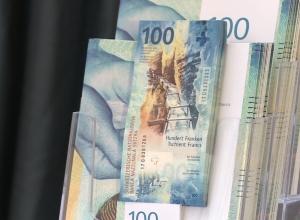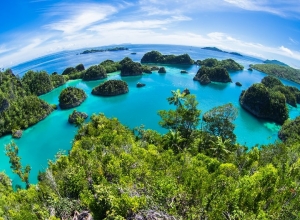Hydropolitics remains politics, and here’s why we need discourse analysis
"For the one who breaks her back.
For he that walks in the dark. And those swimming among the shark.
The GERD is not a dream, but a reality on track."
That’s how Billene Seyoum, Press Secretary for the Office of the Prime Minister of Ethiopia, described the Grand Ethiopian Renaissance Dam (GERD) in her recent 'Ethiopia speaks' poem. The long-standing dispute between Egypt and Ethiopia – and Sudan to some extent – over sharing the Nile river is nothing new. Still, the filling of the reservoir has put it once again under the limelight. One decade after the dam construction started and after years of negotiations and renegotiations, the GERD remains a source of regional acrimony. While, for Ethiopia’s political elites, the GERD is a matter of development and "national pride" 1 – as reflected in the 2012 billboard with former PM Zenawi –, for Egyptian leadership, it is a "matter of life and existence" 2.
Such contrasting perceptions are not restricted to the Nile basin. The construction of the Rogun dam in the Vakhsh river – a tributary of the Amu Darya river – has also drawn diverging opinions. For Tajik President Rahmon, the dam represented the "bright future" of Tajikistan 3. For the former Uzbek President Karimov, projects such as the Rogun dam "suffered from megalomania" and had the potential to lead to "not just serious confrontation, but even wars" 4. The shift in this seemingly never-ending standoff between Tajikistan and Uzbekistan came after President Karimov’s death and the rise to power of Mirziyoyev, who now viewed the dam as a way to "solve water and energy problems" 5.
Photograph from October 29th 2016 during the ceremony for the launch of the construction of the Rogun dam. The white banner contains a quote from President Emomali Rahmon: "You should keep in mind that your contribution to the construction of this vital facility for the present and future of the Motherland will be recognized and appreciated by future generations as a symbol of selflessness for the development of the nation" (In Tajik: Шумо дар хотир дошта бошeд, ки сaҳмaтон дар сохтмони ин иншооти барои имрӯзу фардои Ватан ҳaёtaн муҳим аз ҷониби наслҳои оянда чyн тимcоли фидокорӣ ба xотири рушди Bатанy миллvат эътироф ва қадрдонӣ хоҳанд шуд). Source: Press Service of the President of the
These are not mere statements: they are both the product and producer of hydropolitical realities that result from complex processes and power games that intervene simultaneously between and within involved countries. If there is one thing we have learned from cases such as the Nile and Amu Darya river basins, it is that hydropolitics manifests itself through material constructions (e.g., the GERD and Rogun dam) and institutional forms (e.g., the 2015 Memorandum of Understanding on the principles on the GERD project and the International Fund for Saving the Aral Sea) as much as the ideas, concepts, and categories produced, reproduced, and transformed in a bundle of practices. In this vein, our new piece, "Exploring discursive hydropolitics: a conceptual framework and research agenda", contributes to ongoing researches that argue for strengthening the discursive lens in hydropolitical analyses.
By studying the discourses actors subscribe to and put forward, we can begin to grasp three key elements: (1) how the framings behind a given transboundary water "problem" – and its proposed "solutions" – emerge and grow, (2) the underlying assumptions that contribute to structure a strategy or a policy process, and (3) the key actors and factors influencing transboundary interactions.
Our objective is to compare different processes and contexts to identify common features and explanatory variables for the occurrence of conflict and/or cooperative dynamics. Yet, a prerequisite for such endeavour is to make discourse analysis of hydropolitics more systematic. To do so, we develop an analytical framework that should contribute to untangle existing discourses and discern ongoing discursive practices better. In turn, this understanding can complement insights from global studies of water conflict and cooperation – for instance, the various analyses stemming from the Transboundary Freshwater Dispute Database (TFDD) datasets on treaties, river basin organisations, and hydropolitical events.
Building upon previous research 6-8, we distinguish four types of discourses:
- Dominant discourse. A discourse becomes dominant when we draw on its concepts or categories to understand or frame a particular issue.
- Institutionalised discourse. A discourse becomes institutionalised when it solidifies in particular social practices and institutional arrangements.
- Hegemonic discourse. A discourse becomes hegemonic when it is both dominant and institutionalised.
- Sanctioned discourse. A discourse becomes sanctioned when it is endorsed by power elites, which, in international hydropolitics, are the ensemble of State representatives (politicians, civil servants, or diplomats).

The four types of discourses we use for analysing hydropolitics. See our piece for a more detailed explanation of these categories of discourses and their underlying processes.
In a day and age with blooming momentum on leveraging big data and machine learning techniques for measuring and monitoring hydropolitical tensions, it is crucial to remember that hydropolitics remains politics 9. This means two things. First (1), that hydropolitics goes beyond physical reality. Thus, we need to broaden our notion of hydropolitical data to include discourses and discursive practices, with discourse analysis being a valuable tool for exploring the political meanings that shape the constantly evolving governance of transboundary waters. Second (2), that contextual, qualitative analysis will always be needed to understand the challenges related to the wicked problem of transboundary water interactions.
References
1 Statement from Ethiopian Deputy Prime Minister and Foreign Minister Mekonnen on the GERD 2nd filling, April 2021.
2 Statement from Egyptian President El-Sisi at the UNGA 74th session, September 2021.
3 Statement of Takik President Rahmon at the meeting with staff of Rogun hydropower plant, October 2020.
4 Statement of Uzbek President Karimov during his visit to Kazakhstan, September 2012.
5 Joint statement from Tajik President Rahmon and Uzkek President Mirziyoyev on strengining friendship and neighborliness, March 2018.
6 Hajer, M.A. 1995. The Politics of Environmental Discourse: Ecological Modernization and the Policy Process. Oxford University Press. doi.org/10.1093/sf/75.3.1138.
7 Trottier, J. 2007. A wall, water and power: the Israeli "separation fence". Review of International Studies 33(1): 105–127.
8 Hussein, H. 2016. An analysis of the discourse of water scarcity and hydropolitical dynamics in the case of Jordan. University of East Anglia.
9 Geneva Water Hub, 2021. Bibliography: What is hydropolitics? Examining the meaning of an evolving field.
Fatine Ezbakhe
Coming from a civil engineering background, Fatine Ezbakhe has developed an interdisciplinary research career, specializing in water and environmental resources. With postgraduate degrees in water and sanitation for development (MSc) and decision analysis for sustainable development (PhD), her research has addressed issues of technical, societal and policy relevance.
Christian Bréthaut
Professor Christian Bréthaut is the Director of the Education and Knowledge Component of the Geneva Water Hub and the co-lead of the UNESCO Chair in Hydropolitics at University of Geneva. He holds a PhD in Geosciences and Environment from the University of Lausanne. His area of expertise is water governance and policy, with a particular focus on the management of transboundary rivers, the water-food-energy nexus and the science-policy interface.





